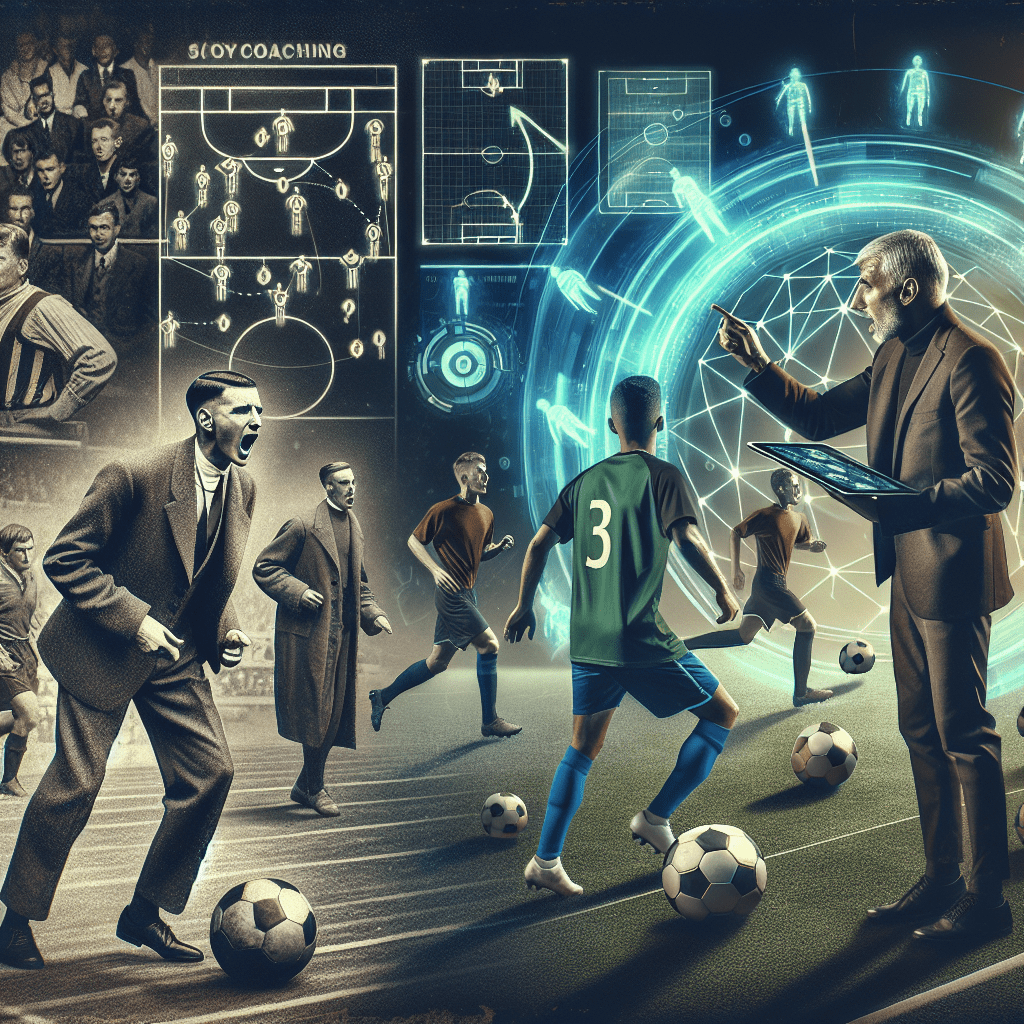[ad_1]
The Evolution of Coaching Philosophy in Modern Soccer: A Global Perspective
Soccer, or football as it is known outside of North America, is the world’s most popular sport. It is a game that inspires passion, evokes emotion, and brings people together. At the heart of the sport’s continuous evolution is the coaching philosophy, which has undergone significant transformations over the years. This article delves into these changes, offering a comprehensive global perspective on how soccer coaching philosophies have evolved.
The Early Days: Tactical Rigidity and Physicality
The roots of modern soccer can be traced back to the late 19th and early 20th centuries. During these formative years, the game was largely characterized by a focus on physicality. Coaching philosophies were rudimentary, primarily revolving around fitness and discipline. Tactics, to the extent they existed, were basic and rigid. The popular formation of the era, the 2-3-5 pyramid, reflected a direct approach to the game, with little emphasis on midfield control or defensive solidity beyond outnumbering the opposition attack.
The Post-War Evolution: Tactical Innovations and the Rise of Total Football
The post-World War II era marked a notable shift in soccer coaching philosophies, most notably in Europe and South America. In Hungary, the Magical Magyars introduced a fluid style of play that bewildered opponents, relying on quick, short passing and constant movement. Around the same time, Brazil’s embrace of the beautiful game, characterized by individual skill, creativity, and flair, led to global dominance.
However, it was perhaps the Dutch concept of Total Football in the 1970s that most radically shifted coaching philosophies. Pioneered by Ajax and the Netherlands national team under the guidance of Rinus Michels, Total Football was predicated on players’ ability to adapt and switch positions fluidly during a game, emphasizing technical skill, spatial awareness, and a collective approach to both attack and defense. This philosophy required a high level of coaching, understanding of the game, and player versatility, setting new standards for what was expected of soccer coaches and players alike.
The Modern Era: Tactical Diversity and the Globalization of Coaching Philosophies
Today, the world of soccer coaching is more diverse and sophisticated than ever before. The globalization of the sport has led to an exchange of ideas and philosophies across continents, giving rise to a myriad of tactical systems and approaches. Coaches are now expected to be tacticians, man-managers, and psychologists, capable of adapting their strategies to the strengths and weaknesses of their squads and opponents.
Central to modern coaching philosophy is the emphasis on possession-based football, as popularized by FC Barcelona and the Spanish national team in the late 2000s and early 2010s. This philosophy focuses on controlling the game through high levels of possession, precise passing, and patient build-up play to create scoring opportunities. However, this is just one of many successful philosophies in the contemporary game. Counter-attacking football, high-pressing systems, and defensively solid, compact tactical setups have all led teams to national and international success.
The Impact of Technology and Data Analysis
The advancement of technology and data analysis has further transformed coaching philosophies. Coaches and analysts now have access to a wealth of data regarding player performances, tactical trends, and opponent weaknesses. This has allowed for a more detailed and scientific approach to game preparation, with training sessions and tactical plans increasingly informed by data analysis.
FAQs
1. How have soccer coaching philosophies changed over the years?
Soccer coaching philosophies have evolved from a focus on physicality and basic tactics to more sophisticated, diverse, and tactically flexible approaches. The introduction of Total Football, possession-based styles, and data-driven tactics are key milestones in this evolution.
2. What was Total Football?
Total Football was a tactical philosophy that emphasized fluid positional play, with players capable of switching positions seamlessly during a match. It required high technical skills, intelligence, and versatility from players.
3. How has technology impacted modern soccer coaching?
Technology and data analysis have provided coaches with detailed insights into player performances, opponent tactics, and potential areas of improvement, leading to more informed tactical decisions and training methods.
4. Are there any universally accepted coaching philosophies in modern soccer?
While certain philosophies like possession-based football have gained widespread popularity, modern soccer is characterized by tactical diversity. Coaches often adapt their philosophies based on their squad’s strengths, opponent strategies, and evolving trends in the game.
5. How important is the psychological aspect in modern soccer coaching?
The psychological aspect is crucial. Modern coaches are expected to be adept at managing players’ mental well-being, motivating them, and building team cohesion, which are all vital for success on and off the pitch.
The evolution of coaching philosophy in soccer reflects the sport’s dynamic and ever-changing nature. As soccer continues to unite people across the globe, it will be intriguing to see how coaching philosophies further evolve in response to new trends, technologies, and ideas in the beautiful game.
[ad_2]






